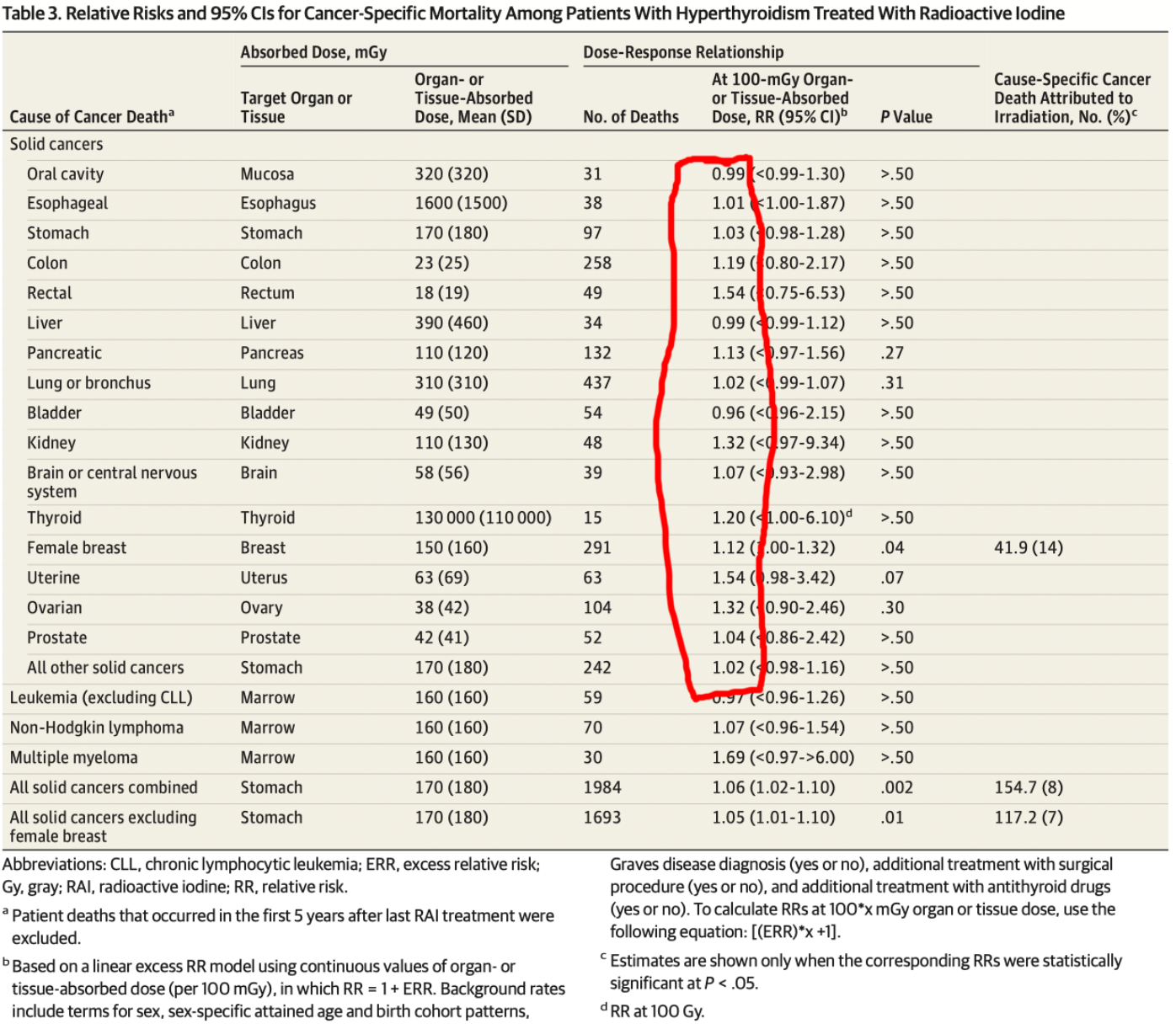Hyperthyroidism and Radioiodine Treatment
Hyperthyroidism is a condition in when the thyroid produces too much thyroid hormone. Some people call this condition overactive thyroid.
Radioactive iodine has been used for the treatment of hyperthyroidism for a very long time. Other treatments include antithyroid medications and surgery (removing part of a whole thyroid).
Radioactive iodine involves a patient swallowing a tablet of radioactive iodine (I 131). This is not external beam treatment, which is the most common radiation treatment given.
Dr Kitahara’s Study
A recent study by Dr Kitahara and her team published at the JAMA Internal Medicine journal looked into radioactive iodine treatment and associated risk of subsequent cancer development in patients with hyperthyroidism.
This study is based on earlier research based on Cooperative Thyrotoxicosis Therapy Follow-up Study Group data published more than 20 years ago. This study showed that total and site-specific cancer mortality rates were not found to be elevated in radioiodine treated patients compared with the general population.
Dr Kitahara’s study used the same group of patients and looked at their cancer outcomes 20 years later. These patients were followed up with on the average of 26 years and some almost 70 years.
The study included 18,805 patients with most being women because most patients with hyperthyroidism are females. They looked at how many patients developed other cancers, the group’s death numbers from cancers and how many radioiodine treatments patients had during this time as well as the total radiation dose amounts (including per organ involved).
During the follow-up, 15,484 patients died. Cancer was the primary cause of death in 2366 patients (15.3%). There was a small increase in deaths from all solid cancers (see photo below). None of this increase in cancer rates was statistically significant; you can see that the RR confidence intervals (RR 95% CI) include 1.00 and that the P-value is not less than 0.05.
The significant cancer rate increase was found in breast cancers, although the number still came to only 1.00.
The most crucial information from Dr Kitahara’s study showed that the increased dose of radiation generated increased rates of cancer to those organs.
What This Means and My Understanding of This Issue
This study involved a lot of patients who were treated with radiation iodine for hyperthyroidism. However, there was still a small number of such patients as well as small amounts of cancer deaths recorded. This makes it hard to truly understand the effects of radiation iodine treatment on increased cancer mortality.
The study also didn’t exclude confounding factors like smoking, alcohol intake, hormone treatments and obesity among these patients and what effects it could’ve had on developing certain cancers. The research also didn’t include the radiation dose administered per organ, which makes it unclear on what the outcome might be.
My Advice
If you are going to have radiation iodine treatment for hyperthyroidism (not for thyroid cancer), I suggest talking to your endocrinologist, radiation oncologist or endocrine surgeon about risks.
Talk to them about your concerns and alternative treatment options. There are such options like tablets and surgery for hyperthyroidism treatment. You can always get more opinions and talk to more than one specialist.
Unfortunately, all treatments come with risks. You need to be fully aware of any risks as well as benefits, so you can then choose the right treatment for yourself. There should be enough time for you not to rush, but research, fully understand and decide on the suitable treatment option.


